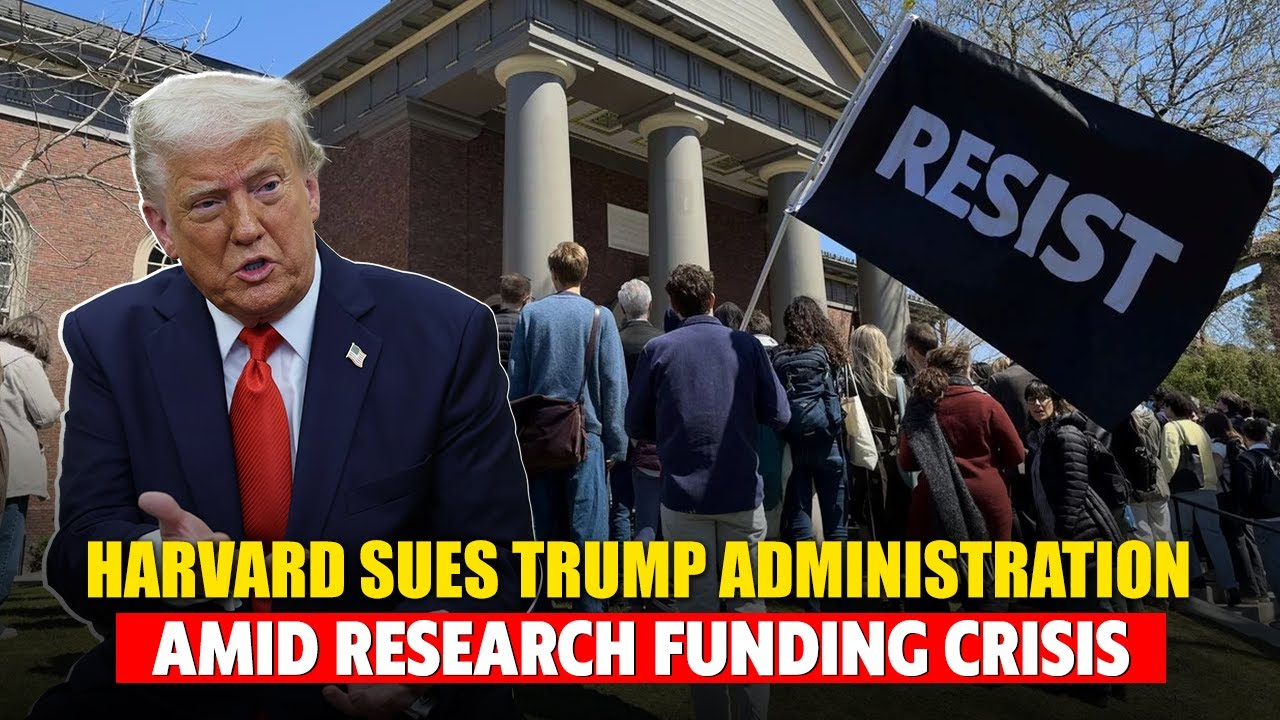The Harvard research funding crisis has sent shockwaves through the academic community, as critical funding has been abruptly frozen by government action. Just hours after Harvard resisted the Trump administration’s governance demands, a stop-work order halted projects at the Wyss Institute, including ground-breaking organ-on-a-chip research led by Don Ingber. With $2.2 billion in federal research funding now at stake, researchers are facing unprecedented challenges that threaten both their work and future employment. Such government funding cuts have ignited concerns about the viability of academic research, a cornerstone of American innovation. As the situation unfolds, it remains uncertain how these academic research challenges will reshape the landscape of scientific progress at one of the nation’s foremost institutions.
Recent developments at Harvard University have spotlighted a critical funding dilemma impacting its research initiatives. Tensions have escalated following a government-imposed stop-work order that halted significant projects at the esteemed Wyss Institute, home to pioneering research like organ-on-a-chip technology. Amid these academic funding disruptions, notable figures like Don Ingber are navigating a precarious landscape characterized by cuts in federal support. The situation raises pressing questions about the future of scientific inquiry within a system long supported by government-academic collaboration. With the halt in operations, the broader implications for innovation and research at Harvard—and beyond—are now in jeopardy.
The Consequences of Harvard’s Funding Cuts
The recent funding cuts imposed by the government have led to significant implications for the research community at Harvard and beyond. The immediate halt to the organ-on-a-chip projects, which are pivotal for understanding human health impacts, including radiation damage, has caused a stir among researchers. As reported, these projects not only contribute valuable insights into tissue damage from radiation but are also instrumental in drug identification that could mitigate such effects. The disruption of ongoing studies threatens years of accumulated knowledge and investment, highlighting the academic research challenges that arise from sudden governmental intervention.
Moreover, the academic environment has become rife with uncertainty. Researchers like Don Ingber are tasked with making difficult decisions that may affect the careers and futures of their teams. The fear of layoffs, project cancellations, and the resulting talent drain is palpable. If researchers are forced to abandon their work, the ramifications will echo through the industry, potentially stifling innovation and collaboration that have historically been driven by robust partnerships between academia and government funding.
Frequently Asked Questions
What is the Harvard research funding crisis related to stop-work orders?
The Harvard research funding crisis refers to recent government funding cuts that led to stop-work orders on key projects, particularly impacting the work of researchers at the Wyss Institute. Founded by Don Ingber, the institute faced interruptions on organ-on-a-chip projects, crucial for various biomedical applications, due to a freeze in approximately $2.2 billion in funding after Harvard resisted certain governmental demands.
How are government funding cuts impacting Harvard’s organ-on-a-chip projects?
Government funding cuts significantly impact Harvard’s organ-on-a-chip projects by halting essential research, forcing researchers to stop work on multiyear contracts valued at over $19 million. This situation places talented researchers and critical projects at risk, as academic research challenges arise alongside funding uncertainties.
Who is Don Ingber and how does he relate to the Harvard research funding crisis?
Don Ingber is the founding director of the Wyss Institute for Biologically Inspired Engineering at Harvard. He has been directly affected by the Harvard research funding crisis, as the stop-work orders on his organ-on-a-chip projects exemplify the challenges faced by researchers amid government funding cuts and the associated legal disputes.
What are the implications of the stop-work order on Harvard’s research community?
The implications of the stop-work order on Harvard’s research community include immediate project halts, loss of momentum for ongoing research, and uncertainty for students and postdoctoral fellows whose work relies on these projects. Researchers are scrambling to find alternative funding sources or positions within the institution to retain talent and maintain project integrity.
What challenges does Harvard face in light of the recent funding cuts?
Harvard faces significant academic research challenges due to funding cuts, including managing the fallout from stop-work orders, ensuring job security for researchers, and protecting the continuity of important research initiatives. The university is also engaged in legal battles to restore funding and address the implications of governmental demands.
How might the Harvard research funding crisis affect future research recruitment?
The Harvard research funding crisis may deter future research recruitment as uncertainty and instability in funding discourage talented scientists from pursuing opportunities at institutions like Harvard. This instability could weaken the traditional draw of Harvard as a leading research university, potentially affecting its ability to attract international talent.
What are the long-term consequences of the Harvard research funding crisis on American innovation?
The long-term consequences of the Harvard research funding crisis on American innovation could be severe, as interruptions in critical research projects may stifle scientific progress and economic growth. The partnership between government and academia has historically driven technology development, and disruptions to funding threaten this vital relationship.
What steps is Harvard taking to respond to the funding crisis and its impact on research?
In response to the funding crisis, Harvard is pursuing legal action to contest the government’s cuts, reallocating internal funds to support affected projects, and seeking alternative grants. Leaders like Don Ingber are actively engaging with their teams to navigate the crisis while protecting researchers and ensuring project sustainability.
Why is the Harvard research funding crisis considered a pivotal moment for academic research?
The Harvard research funding crisis is viewed as pivotal because it highlights the fragility of research funding and the potential for governmental policies to create significant challenges in academic research. The outcome of this crisis could influence the future landscape of funding, research priorities, and the overall collaboration between government and academic institutions.
| Key Points | Details | |
|---|---|---|
| Stop-Work Order Received | Harvard faced a stop-work order affecting important research projects after rejecting government demands. | |
| Funding Freeze | The U.S. government froze approximately $2.2 billion in research funding to Harvard. | |
| Lawsuit Filed | Harvard filed a lawsuit against the government to restore funding, calling the demands unconstitutional. | |
| Impact on Research | Research projects including organ-on-a-chip technology are at risk, affecting advancements in health and space research. | |
| Concerns of Researchers | Many researchers, including immigrant scientists, are considering leaving or have already left due to uncertainty. | |
| Economic Impact | The crisis threatens to derail America’s innovation engine, affecting technology and economic growth. | |
Summary
The Harvard research funding crisis highlights a significant conflict between academic institutions and governmental policies, posing serious threats to vital research initiatives. As the University grapples with a $2.2 billion funding freeze and a legal battle for restoration, the ramifications are felt not only within the halls of Harvard but across the sphere of American innovation. The efforts to halt critical projects have raised alarms among researchers and students alike, leading to concerns over job loss and the broader implications for scientific progress. Ultimately, this crisis underscores the fragile yet essential partnership between academia and government in sustaining the innovative spirit that has driven the U.S. economy for decades.



